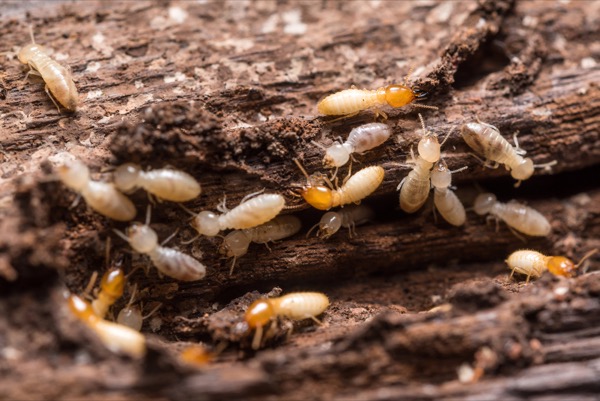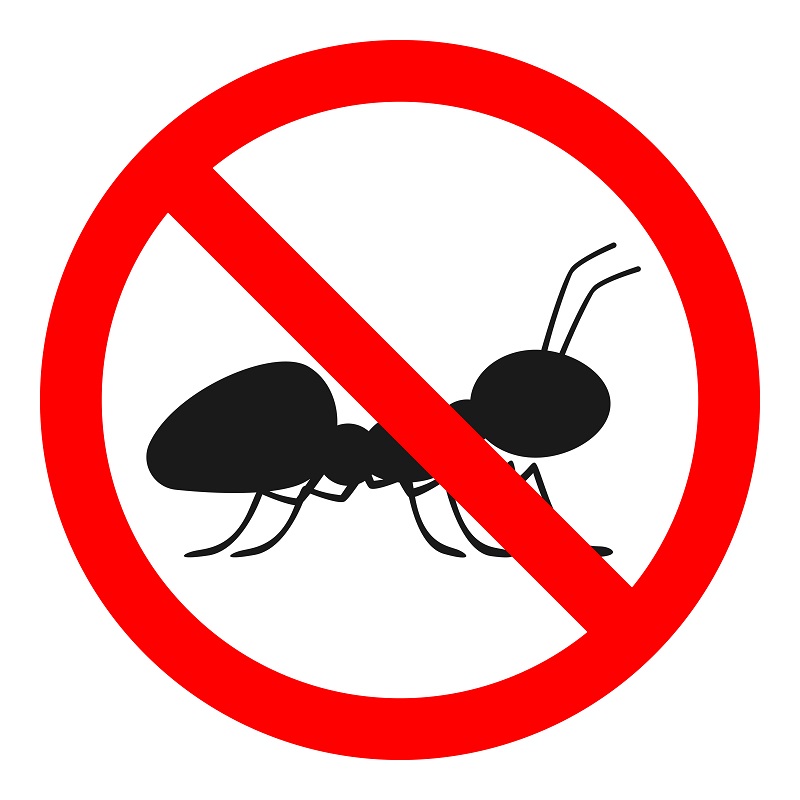Total Ant Control: Techniques and Services to Beat Ant Issues
Total Ant Control: Techniques and Services to Beat Ant Issues
Blog Article
Ecological Impact of Insect Control: Harmonizing Performance With Sustainability
The ecological influence of pest control is a critical problem that requires a delicate equilibrium in between achieving performance in guaranteeing and taking care of insects sustainability of our communities. From the use of dangerous chemicals that seep right into our soil and water to the unplanned effects on non-target varieties, the repercussions of standard pest control practices are significant.
Harmful Chemicals in Pest Control
The utilization of damaging chemicals in bug control poses significant ecological and wellness risks that require cautious consideration and reduction techniques. Insecticides, pesticides, and herbicides are frequently utilized to remove insects, yet their prevalent application can cause unintended consequences. These chemicals can pollute soil, water sources, and the air, influencing not only the targeted parasites but likewise valuable pests, wildlife, and humans.

To resolve these risks, integrated bug monitoring (IPM) strategies are being promoted as a more sustainable option. IPM entails a mix of techniques such as biological control, environment adjustment, and the targeted use pesticides as a last hope (ant control huntersville nc). By taking on an all natural strategy to pest control, we can reduce the ecological and health and wellness impacts associated with hazardous chemicals while effectively managing pest populations
Effect on Non-Target Species
Considering the unplanned consequences of parasite control approaches, the effect on non-target species is a vital facet that calls for thorough assessment. While pest control steps intend to target certain parasites, various other microorganisms in the ecological community may be accidentally impacted. Non-target varieties, including valuable bugs, birds, mammals, and even plants, can endure direct or indirect damage from pesticide applications or organic control approaches.
Insecticides created to battle a certain insect parasite might harm pollinators like bees or all-natural killers such as ladybugs. Biological control representatives, if not species-specific, can present threats to unplanned targets, interrupting the eco-friendly balance.
To mitigate the influence on non-target species, incorporated parasite monitoring (IPM) strategies that highlight an all natural technique to pest control are recommended. These approaches focus on using ecologically pleasant practices, minimizing damage to helpful microorganisms while successfully taking care of pest populaces. Conducting thorough risk analyses and checking the end results of insect control efforts are vital action in securing non-target types and promoting general environment wellness.
Soil and Water Contamination
Unintentional environmental consequences of insect control approaches expand beyond influencing non-target species, with substantial implications for dirt and water contamination. Pesticides, herbicides, and chemical fertilizers made use of in bug control can seep right into the soil and pollute groundwater, presenting a danger to both marine and terrestrial ecological communities. Soil contamination can interrupt the equilibrium of microbes important for nutrient biking and plant development, causing decreased dirt fertility and efficiency. Moreover, these chemicals can continue the atmosphere for prolonged durations, building up in the dirt and potentially going into the food chain.
Water contamination is an additional critical issue connected with bug control practices. Overflow from agricultural areas treated with chemicals can bring these chemicals into close-by water bodies, affecting aquatic microorganisms and water quality. Impurities in water sources can have far-ranging consequences, impacting not just marine life however additionally human wellness via the consumption of contaminated water or aquatic microorganisms. To reduce dirt and water contamination from insect control activities, incorporated pest monitoring techniques that focus on sustainability and lessen chemical inputs are crucial.
Air Air Pollution From Pesticide Use
Direct exposure to airborne pesticides during farming applications positions a substantial issue for air pollution control measures. In addition, chemical drift, where chemicals are lugged by the wind to unexpected areas, can lead to the contamination of neighboring communities and water bodies.
Methods for Lasting Pest Control
In the world of farming techniques, implementing lasting pest control approaches is vital for maintaining environmental equilibrium and guarding crop yields. Sustainable insect control emphasizes using eco-friendly methods to take care of parasite populations successfully while reducing injury to non-target microorganisms and ecological communities. Integrated Pest Administration (IPM) is an extensively embraced technique that combines organic, cultural, physical, and chemical control approaches to achieve lasting parasite management options.
One trick approach in sustainable pest control is advertising biodiversity within agroecosystems. By enhancing all-natural opponents of pests, such as predators and parasitoids, farmers can minimize the requirement for synthetic pesticides. Crop turning and diversity are also reliable techniques to disrupt pest life process and produce much less desirable conditions for bugs to flourish. Additionally, using pest-resistant plant ranges and employing strategies like trap cropping can help reduce insect pressure without counting heavily on chemical interventions. Inevitably, by integrating these lasting parasite control approaches, farmers can attain an equilibrium in between pest administration efficiency and ecological stewardship.
Verdict
Finally, the ecological impact of pest control approaches must be very carefully thought about to balance performance with Extra resources sustainability. Unsafe chemicals used in bug control can result in soil and water contamination, air contamination, and harm non-target types - termite control. It is important to execute sustainable bug control techniques to decrease these unfavorable effects on the environment and advertise a much healthier ecological community for future generations
By embracing an all natural approach to pest control, we can decrease the environmental and health and wellness influences linked with harmful chemicals while successfully managing pest populaces.

To alleviate the air contamination created by pesticide usage, it is necessary to take on incorporated bug administration methods that focus on the use of non-chemical pest control techniques, such as plant turning, all-natural predators, and immune plant ranges. Lasting parasite control emphasizes the usage of environmentally pleasant methods to take care of bug populaces successfully while decreasing damage to non-target microorganisms and communities. Integrated Parasite Management (IPM) is a commonly embraced technique that combines biological, social, physical, and chemical control techniques to accomplish long-lasting bug monitoring options.
Report this page